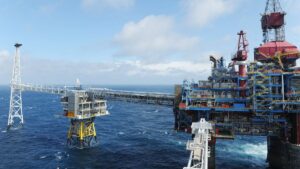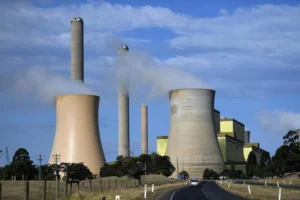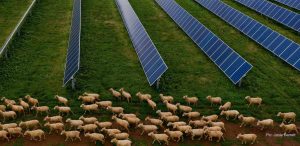A global study from Greenpeace has named Australia’s export coal proposals as the world’s second largest fossil fuel expansion, one of 14 large carbon intensive projects that threaten to lock in worst-case projections of global warming.
The report, entitled ‘Point of No Return’ from Greenpeace International and consultant Ecofys, said the 14 projects, which also include coal expansion plans in China, the US and Indonesia, oil expansion in the tar sands of Canada, the Arctic and Brazil, and new gas production in the Caspian Sea and the US, will increase carbon dioxide (CO2)emissions by six gigatonnes a year. Ecofys modeling found that the yearly CO2 emissions from these projects will be higher than the total US emissions and will lock in catastrophic global warming.
“The same Australian Government warning us that recent deadly heat waves are a sign of things to come is also presiding over a globally significant expansion of coal exports, the resource which is driving climate change,” said Greenpeace CEO David Ritter. “We are willfully sabotaging our own future.” The report noted that “even the World Economic Forum,” in its Global Risks 2013 report for this year’s gathering in Davos, warns that we are on course for the global temperature to increase by 3.6 to 40 C, possibly by 6 degrees.
French company buys control of tidal energy firm
French conglomerate DCNS, once of the biggest players in the defence and energy markets in France, is to take control of Dublin-based tidal energy company OpenHydro – investing around €120 million for a 59.7 per cent stake in the company.
DCNS chairman Patrick Boussier said the company had ben looking to invest in green energy for some time. OpenHydro said the deal would give his company the financial firepower to expand the business in Ireland and internationally.
DCNS is the principal marine contractor for the construction of a 2MW wave facility in Reunion Island using the CETO wave energy technology of Australia’s Carnegie Wave Energy. That project is majority owned by France EdF, which is also working with OpenHydro to install tidal energy projects off the coast of Brittany.










